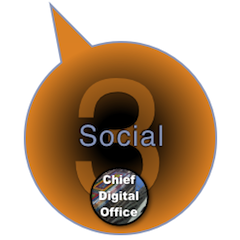 The short guide to forum outreach reveals how experiential social media teams can tap forums’ unique opportunity to engage users, using a three-stage model. Forums are vital to relationship building with people with specific interests. They are consistently the most people-centric platform type according to CSRA’s research in such diverse industries as healthcare, consumer products, financial services, government, and nonprofits. As such, although they are very human and social, forums are distinct from social media, which often enables social actions oriented to content sharing and short exchanges. The short guide to forum outreach reveals how experiential social media teams can tap forums’ unique opportunity to engage users, using a three-stage model. Forums are vital to relationship building with people with specific interests. They are consistently the most people-centric platform type according to CSRA’s research in such diverse industries as healthcare, consumer products, financial services, government, and nonprofits. As such, although they are very human and social, forums are distinct from social media, which often enables social actions oriented to content sharing and short exchanges.
In some ways, forums are the polar opposite of social media because their DNA is threaded discussions, which enable long conversations among many members. Even more exciting, the most passionate members are often members of several forums that are relevant to your stakeholders and workstreams.
[…]
 Experiential Social Media and Business Intimacy shows how social media grounded in customer experience holds the key to trust, relationship and profit. When businesses discover, invite, and build trusted relationships with people in digital public, their actions speak loudly to the silent, ten times larger audience that’s observing the process. In addition, “accidents” are the express lane to developing trust and business intimacy. Experiential Social Media and Business Intimacy shows how social media grounded in customer experience holds the key to trust, relationship and profit. When businesses discover, invite, and build trusted relationships with people in digital public, their actions speak loudly to the silent, ten times larger audience that’s observing the process. In addition, “accidents” are the express lane to developing trust and business intimacy.
“Customer experience” directly leads to customer preference and more share of wallet, although most business owners and executives dismiss it as a buzzword. As practiced by CSRA since 2006, experiential social media is a group of practices that deepen intimacy with customers and increase profit. “Social” information is the currency of business intimacy. Here I’ll outline how this enchilada rolls, so you can begin to use experiential to increase customers’ value and your profit.
[…]
 This winter carries a surprising benefit of extreme weather. It has been a bit colder than usual in much of the U.S.A. due to the “Polar Vortex,” and I have observed that many professional groups in Chicago have canceled or postponed events due to “extreme weather” over the past two months. This has started to become a phenomenon, so I’ve been observing it with interest. This winter carries a surprising benefit of extreme weather. It has been a bit colder than usual in much of the U.S.A. due to the “Polar Vortex,” and I have observed that many professional groups in Chicago have canceled or postponed events due to “extreme weather” over the past two months. This has started to become a phenomenon, so I’ve been observing it with interest.
My social business client work involves analyzing digital social networks, and it constantly reveals how people affect each other’s behavior, often in surprising ways. I hypothesize that reactions to this weather phenomenon are having unintended effects, so, in the spirit of all Noodles, I’ll explore some of these deeper meanings and invite your thoughts.
[…]
Chief Digital Officer Needs Analysis is an executive summary of how CSRA helps organizations assess their need for “going digital” and hiring digital executives. These engagements serve as “requirements analysis” for an enterprise, business or brand.
Improving the Selection Process for Digital Executives
 Astute CEOs and boards of established firms and brands are awakening to an increasingly uncomfortable reality: for many, business results have been flat, and customers are behaving “unpredictably.” Since this is such a prevalent trend, there is emerging consensus that “going digital” is the way to get closer to customers(1) and revitalize business. CEOs or board members get on the phone to their executive recruiter to search for a Chief Digital Officer, a “digital CMO,” or maybe a digital-savvy CIO to lead digital transformation. As we’ll see, in so doing they are too often putting the cart before the horse. They will get better results by assessing their needs for digital expertise first, so I’ll offer a simple yet robust needs assessment process. Astute CEOs and boards of established firms and brands are awakening to an increasingly uncomfortable reality: for many, business results have been flat, and customers are behaving “unpredictably.” Since this is such a prevalent trend, there is emerging consensus that “going digital” is the way to get closer to customers(1) and revitalize business. CEOs or board members get on the phone to their executive recruiter to search for a Chief Digital Officer, a “digital CMO,” or maybe a digital-savvy CIO to lead digital transformation. As we’ll see, in so doing they are too often putting the cart before the horse. They will get better results by assessing their needs for digital expertise first, so I’ll offer a simple yet robust needs assessment process.
Although CSRA’s client work shows accelerating digital […]
Using Social Media and Social Business Together to Evolve Experience reveals differences between “the two socials,” and its startling conclusion is that most businesses will benefit from keeping them separate but related during the next three years.
 [Updated] There’s a much deeper context that makes the two socials vital: many of the assumptions on which business is built are being completely disrupted. For only one example, as Chief Marketer myself, I used to follow the mantra, “We always want to show our brand in the most positive light” (even when we’re lackluster). That impulse is increasingly risky. Take a few minutes and reflect on how profound that change is. Entire marketing and public relations industries are built on it, and it is very risky because people reveal the obfuscation and half-truths that used to work. There is no such thing as a “half” truth. [Updated] There’s a much deeper context that makes the two socials vital: many of the assumptions on which business is built are being completely disrupted. For only one example, as Chief Marketer myself, I used to follow the mantra, “We always want to show our brand in the most positive light” (even when we’re lackluster). That impulse is increasingly risky. Take a few minutes and reflect on how profound that change is. Entire marketing and public relations industries are built on it, and it is very risky because people reveal the obfuscation and half-truths that used to work. There is no such thing as a “half” truth.
From a practical standpoint, organizations need to manage their way through the transition to pervasive transparency, pacing their evolution with changing stakeholder expectations. This is where social media and social […]
Digital Transformation’s Personal Issue reveals personal treatment to be the key to breakthrough customer experience, and it shows how digital social spaces enable Chief Digital Officers to use personal treatment to create more profit. Before they arrive, though, they need to lead their organizations through the Personal Issue. 
The Personal Issue refers to a perceived conflict between empowered customers and profit-starved companies. Digital social technologies are enabling customers to “re-personalize” business and society because their online interactions among themselves are personal, which is changing their expectations of all interactions.
However, businesses resist treating customers personally because they fear cost and inefficiency. They don’t understand the digital social economics of treating customers personally online, at scale.
Meanwhile, the missions of chief digital officers (CDOs) and chief customer officers (CCOs) are creating bold new “customer experience” and profits by using digital technologies to transform organizations, brands and businesses. They will fulfill their missions far more quickly and completely by using the key.
[…]
 Omni-Channel Retail, Mobile and Big Data offers tantalizing glimpses into current and future omni-channel retail trends and technologies. I “sat down” with three thought leaders and a crowd of smart people on AllAnalytics’ real-time webcast, which featured real-time Q&A with the panelists afterward. You can watch it here. Omni-Channel Retail, Mobile and Big Data offers tantalizing glimpses into current and future omni-channel retail trends and technologies. I “sat down” with three thought leaders and a crowd of smart people on AllAnalytics’ real-time webcast, which featured real-time Q&A with the panelists afterward. You can watch it here.
Panelists Dr. Erik Brynjolfsson, Dr. Yu Jeffrey Hu and Dr. Mohammad Saifur Rahman collaborate on numerous projects, and they are intensely interested in retail transformation. They also referenced one of their recent papers, Competing in the Age of Omnichannel Retailing, and I have added some of its points here as well. The webcast was well moderated by AllAnaytics’ Noreen Seebacher and Beth Schultz.
Although it wasn’t discussed in depth, I observe that big data is especially poignant to retailers for two reasons: they have extremely rich internal, proprietary transaction data on customers (loyalty cards, credit cards, returns information, call center information, service information) and retail customers are the most free-wheeling online. Retail customers discuss their experiences in situations in which they use most types of products. This gives retailers priceless […]
7 Social Business Transformation Tools provides digital executives the vital tools of online engagement, from the Social Business Life Cycle and Social Business Strategy Use Cases to the report that ranks social business advisory firms in their ability to help firms transform.

7 Social Business Transformation Tools is Part3 of the CDO Guide to Social Business for Transformation. The tools it describes encapsulate thousands of hours of hands-on experience with strategy and in-the-trenches execution work with global brands, and they explicitly address the ins and outs of people, process and technology. Part3 includes links to tools’ full versions, so CDOs can use it as a dashboard.
The Guide to Social Business for Digital Transformation helps Chief Digital Officers to understand and act on rapidly improving stakeholder relationships, productivity and business performance. The Social Business Competency Center has even more resources. The Chief Digital Office has other competency centers in Mobile, Big Data & Analytics and Ecommerce.
[…]
How to Tap the Social Business Double Value Proposition outlines an efficient and rigorous process for using social business for digital transformation in two ways: social business itself can drive reputation, preference and profit, and it’s the fastest way to develop requirements for mobile, ecommerce and big data investments.
![How to Tap the Social Business Double Value Proposition [CDO Guide to Social Business Part2]](http://rollyson.net/wp-content/uploads/2013/06/CDO_socbus_2_main2.png)
The social business double value proposition works because it discovers, engages and validates the organization’s understanding of stakeholder outcomes. Every organization’s crucial stakeholders have outcomes that they hope to attain by interacting with the organization or using its products or services. Developing deep and broad knowledge of stakeholder outcomes enables the organization to serve and quickly deepen their relationships with their stakeholders—by helping them attain their outcomes by collaborating online; moreover, since it opens fast and inexpensive communication and collaboration channels with them, it can create a continuous innovation process and sustainable advantage over rivals.
The Guide to Social Business Part2 shows how to maximize efficiency by using external and internal analyses to create and execute social business strategy, […]
TheSocial Business Enabler of Digital Transformation reveals how social technologies have changed the economics of interacting and collaborating, and it presents four ways that Chief Digital Officers can use social to lower risk and boost returns of digital transformation.
![The Social Business Enabler of Digital Transformation [CDO Guide to Social Business Part1]](http://rollyson.net/wp-content/uploads/2013/06/CDO_socbus_1_main2.png) Social business competency is pivotal to digital transformation because it combines four unusual characteristics. First, it makes interacting and collaborating an order of magnitude faster and less costly than current processes; second, few organizations understand how to use social business to interact with key customers to boost profit, so leaders enjoy rare advantage; third, when compared to ecommerce, mobile and big data & analytics investments, social business shows results quickly and costs less. Lastly, social business reveals what stakeholders really think when organizations aren’t in the room, so it’s effective for due diligence and “requirements analysis” for ecommerce, mobile and big data investments. Social business competency is pivotal to digital transformation because it combines four unusual characteristics. First, it makes interacting and collaborating an order of magnitude faster and less costly than current processes; second, few organizations understand how to use social business to interact with key customers to boost profit, so leaders enjoy rare advantage; third, when compared to ecommerce, mobile and big data & analytics investments, social business shows results quickly and costs less. Lastly, social business reveals what stakeholders really think when organizations aren’t in the room, so it’s effective for due diligence and “requirements analysis” for ecommerce, mobile and big data investments.
As Social Business Enabler of Digital Transformation explains, social business has a two-fold value proposition for Chief Digital Officers: they can use social directly to drive reputation, innovation and […]
|
|
 The short guide to forum outreach reveals how experiential social media teams can tap forums’ unique opportunity to engage users, using a three-stage model. Forums are vital to relationship building with people with specific interests. They are consistently the most people-centric platform type according to CSRA’s research in such diverse industries as healthcare, consumer products, financial services, government, and nonprofits. As such, although they are very human and social, forums are distinct from social media, which often enables social actions oriented to content sharing and short exchanges.
The short guide to forum outreach reveals how experiential social media teams can tap forums’ unique opportunity to engage users, using a three-stage model. Forums are vital to relationship building with people with specific interests. They are consistently the most people-centric platform type according to CSRA’s research in such diverse industries as healthcare, consumer products, financial services, government, and nonprofits. As such, although they are very human and social, forums are distinct from social media, which often enables social actions oriented to content sharing and short exchanges.
 Experiential Social Media and Business Intimacy shows how social media grounded in customer experience holds the key to trust, relationship and profit. When businesses discover, invite, and build trusted relationships with people in digital public, their actions speak loudly to the silent, ten times larger audience that’s observing the process. In addition, “accidents” are the express lane to developing trust and business intimacy.
Experiential Social Media and Business Intimacy shows how social media grounded in customer experience holds the key to trust, relationship and profit. When businesses discover, invite, and build trusted relationships with people in digital public, their actions speak loudly to the silent, ten times larger audience that’s observing the process. In addition, “accidents” are the express lane to developing trust and business intimacy. This winter carries a surprising benefit of extreme weather. It has been a bit colder than usual in much of the U.S.A. due to the “Polar Vortex,” and I have observed that many professional groups in Chicago have canceled or postponed events due to “extreme weather” over the past two months. This has started to become a phenomenon, so I’ve been observing it with interest.
This winter carries a surprising benefit of extreme weather. It has been a bit colder than usual in much of the U.S.A. due to the “Polar Vortex,” and I have observed that many professional groups in Chicago have canceled or postponed events due to “extreme weather” over the past two months. This has started to become a phenomenon, so I’ve been observing it with interest. Astute CEOs and boards of established firms and brands are awakening to an increasingly uncomfortable reality: for many, business results have been flat, and customers are behaving “unpredictably.” Since this is such a prevalent trend, there is emerging consensus that “going digital” is the way to get closer to customers(1) and revitalize business. CEOs or board members get on the phone to their executive recruiter to search for a Chief Digital Officer, a “digital CMO,” or maybe a digital-savvy CIO to lead digital transformation. As we’ll see, in so doing they are too often putting the cart before the horse. They will get better results by assessing their needs for digital expertise first, so I’ll offer a simple yet robust needs assessment process.
Astute CEOs and boards of established firms and brands are awakening to an increasingly uncomfortable reality: for many, business results have been flat, and customers are behaving “unpredictably.” Since this is such a prevalent trend, there is emerging consensus that “going digital” is the way to get closer to customers(1) and revitalize business. CEOs or board members get on the phone to their executive recruiter to search for a Chief Digital Officer, a “digital CMO,” or maybe a digital-savvy CIO to lead digital transformation. As we’ll see, in so doing they are too often putting the cart before the horse. They will get better results by assessing their needs for digital expertise first, so I’ll offer a simple yet robust needs assessment process. [Updated] There’s a much deeper context that makes the two socials vital: many of the assumptions on which business is built are being completely disrupted. For only one example, as Chief Marketer myself, I used to follow the mantra, “We always want to show our brand in the most positive light” (even when we’re lackluster). That impulse is increasingly risky. Take a few minutes and reflect on how profound that change is. Entire marketing and public relations industries are built on it, and it is very risky because people reveal the obfuscation and half-truths that used to work. There is no such thing as a “half” truth.
[Updated] There’s a much deeper context that makes the two socials vital: many of the assumptions on which business is built are being completely disrupted. For only one example, as Chief Marketer myself, I used to follow the mantra, “We always want to show our brand in the most positive light” (even when we’re lackluster). That impulse is increasingly risky. Take a few minutes and reflect on how profound that change is. Entire marketing and public relations industries are built on it, and it is very risky because people reveal the obfuscation and half-truths that used to work. There is no such thing as a “half” truth.
 Omni-Channel Retail, Mobile and Big Data offers tantalizing glimpses into current and future omni-channel retail trends and technologies. I “sat down” with three thought leaders and a crowd of smart people on AllAnalytics’ real-time webcast, which featured real-time Q&A with the panelists afterward. You can watch it here.
Omni-Channel Retail, Mobile and Big Data offers tantalizing glimpses into current and future omni-channel retail trends and technologies. I “sat down” with three thought leaders and a crowd of smart people on AllAnalytics’ real-time webcast, which featured real-time Q&A with the panelists afterward. You can watch it here.
![How to Tap the Social Business Double Value Proposition [CDO Guide to Social Business Part2]](http://rollyson.net/wp-content/uploads/2013/06/CDO_socbus_2_main2.png)
![The Social Business Enabler of Digital Transformation [CDO Guide to Social Business Part1]](http://rollyson.net/wp-content/uploads/2013/06/CDO_socbus_1_main2.png) Social business competency is pivotal to digital transformation because it combines four unusual characteristics. First, it makes interacting and collaborating an order of magnitude faster and less costly than current processes; second, few organizations understand how to use social business to interact with key customers to boost profit, so leaders enjoy rare advantage; third, when compared to ecommerce, mobile and big data & analytics investments, social business shows results quickly and costs less. Lastly, social business reveals what stakeholders really think when organizations aren’t in the room, so it’s effective for due diligence and “requirements analysis” for ecommerce, mobile and big data investments.
Social business competency is pivotal to digital transformation because it combines four unusual characteristics. First, it makes interacting and collaborating an order of magnitude faster and less costly than current processes; second, few organizations understand how to use social business to interact with key customers to boost profit, so leaders enjoy rare advantage; third, when compared to ecommerce, mobile and big data & analytics investments, social business shows results quickly and costs less. Lastly, social business reveals what stakeholders really think when organizations aren’t in the room, so it’s effective for due diligence and “requirements analysis” for ecommerce, mobile and big data investments.